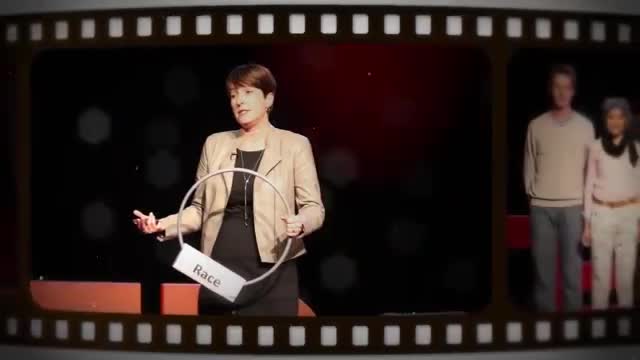
Scott Carney
Investigative journalist and anthropologist Scott Carney has worked in some of the most dangerous and unlikely corners of the world. His work blends narrative non-fiction with ethnography. His books include the New York Times bestseller What Doesn't Kill Us as well as The Red Market and The Enlightenment Trap.
In 2011 Carney learned about a dare-devil fitness guru named Wim Hof who claimed to be able to control his body temperature and immune system at will. Carney figured Hof was a charlatan and so he traveled to Poland on a commision from Playboy with the intention to debunk the method. Though first, he figured he should at least try out the techniques. To his surprise, after a only week of training Carney learned to duplicate Hof's feats. The article went on to capture the national attention and eventually turned into the book What Doesn't Kill Us where Carney used breathwork and cold immersion to hack his body into high performance. In 2015 he climbed to the top of Mt. Kilimanjaro while wearing just a bathing suit in just 28 hours–a major feat that the US army and Dutch Mountaineering association predicted would end in death.
Before Hof, Carney's early work focused on the sprawling illegal markets that commodify human tissue. He spent six years in India interviewing organ brokers, bone traders and child traffickers who had hijacked medical supply chains to profit off the flesh of the poor and downtrodden. Work from The Red Market has been presented in front of the Congress and the United Nations, and contributed to outlawing international surrogacy in India.
Carney was a contributing editor at Wired for five years and his writing also appears in Mother Jones, Men's Journal, Playboy, Foreign Policy, Discover, Outside and Fast Company. NPR and National Geographic TV have adapted his work for screen and airwaves.
He is the founder of Foxtopus Ink, a Colorado-based multimedia company that produces top quality audiobooks, podcasts and video courses. Currently, he is a senior fellow at the Schuster Institute for Investigative Journalism and a 2016-17 Scripps Fellow at the Center for Environmental Journalism in Boulder, Colorado. In 2010, he won the Payne Award for Ethics in Journalism for his story "Meet the Parents," which tracked an international kidnapping-to-adoption ring. Carney has spent extensive time in South Asia and speaks Hindi.
Investigative journalist and anthropologist Scott Carney has worked in some of the most dangerous and unlikely corners of the world. His work blends narrative non-fiction with ethnography. His books include the New York Times bestseller What Doesn't Kill Us as well as The Red Market and The Enlightenment Trap.
In 2011 Carney learned about a dare-devil fitness guru named Wim Hof who claimed to be able to control his body temperature and immune system at will. Carney figured Hof was a charlatan and so he traveled to Poland on a commision from Playboy with the intention to debunk the method. Though first, he figured he should at least try out the techniques. To his surprise, after a only week of training Carney learned to duplicate Hof's feats. The article went on to capture the national attention and eventually turned into the book What Doesn't Kill Us where Carney used breathwork and cold immersion to hack his body into high performance. In 2015 he climbed to the top of Mt. Kilimanjaro while wearing just a bathing suit in just 28 hours–a major feat that the US army and Dutch Mountaineering association predicted would end in death.
Before Hof, Carney's early work focused on the sprawling illegal markets that commodify human tissue. He spent six years in India interviewing organ brokers, bone traders and child traffickers who had hijacked medical supply chains to profit off the flesh of the poor and downtrodden. Work from The Red Market has been presented in front of the Congress and the United Nations, and contributed to outlawing international surrogacy in India.
Carney was a contributing editor at Wired for five years and his writing also appears in Mother Jones, Men's Journal, Playboy, Foreign Policy, Discover, Outside and Fast Company. NPR and National Geographic TV have adapted his work for screen and airwaves.
He is the founder of Foxtopus Ink, a Colorado-based multimedia company that produces top quality audiobooks, podcasts and video courses. Currently, he is a senior fellow at the Schuster Institute for Investigative Journalism and a 2016-17 Scripps Fellow at the Center for Environmental Journalism in Boulder, Colorado. In 2010, he won the Payne Award for Ethics in Journalism for his story "Meet the Parents," which tracked an international kidnapping-to-adoption ring. Carney has spent extensive time in South Asia and speaks Hindi.
The Wim Hof Method and What Doesn't Kill Us
The Body, The Mind, The Spirit: Pitfalls on the Path to Enlightenment
The Red Market: On the Trail of the World's Organ Brokers, Bone Thieves, Blood Farmers, and Child Tr
Scott Carney takes the audience through an almost unbelievable-but shockingly true-journey through the darkest corners of the human supply chains. He weaves together moral and ethical dilemmas with insights that can be applied to any business. Carney stresses the importance of transparency to create an unassailable ethic of public accountability. In an era where businesses depend on complex and often hidden supply chains, Carney sheds light on the unexpected results of globalization in an...


